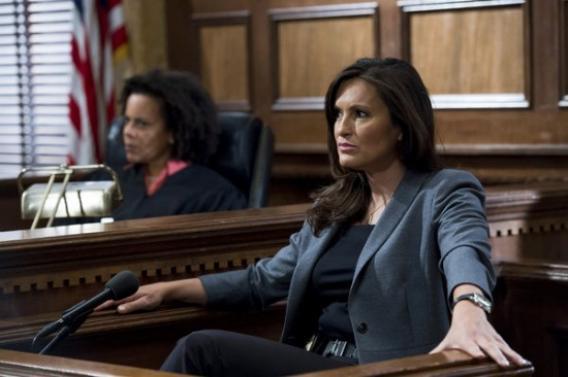I see a lot of murders every week. I love police procedurals, and homicide is, generally speaking, a prerequisite of the genre. It’s the rough equivalent to a bout of dizziness in a medical drama or the arrival of a good-looking stranger in a soap opera—a familiar event that jump-starts the plot machinations. The poor victim is just an excuse for the cops, criminologists, and consulting detectives to show off their smarts.
That’s why I wasn’t too outraged back in April when Vulture’s Margaret Lyons looked at this season’s scripted TV dramas and found that 109 of the 125 shows had “depicted or described in detail a rape or murder.” It’s a shocking statistic, but as a fairly sensitive viewer, I know that all murders are not created equal. I can’t watch creepy psychopath series like The Following, Hannibal, or Criminal Minds—and, on the other hand, cozy mysteries like NCIS and smart procedurals like The Good Wife wouldn’t give anyone nightmares.
This week, though, television kept me awake on a couple of occasions. The season finale of Law & Order: Special Victims Unit focused on a psychopath who broke into the homes of women who tried to bring him to justice. The episode went into what felt to me excessive detail about the horrors he inflicted on a 60-year-old woman who had served as a witness against him. I won’t spoil the surprise ending, but let’s just say that it would cause viewers to wonder if anyone is safe in their own apartment. Earlier in the week I’d watched the first episode of The Fall, a BBC series featuring Gillian Anderson and Archie Panjabi that will be available on Netflix next Tuesday, which also centers on a psychopath who attacks women in their homes. I would’ve hit the trifecta, but I learned my lesson after two sleep-deprived workdays; when the plot summary for the season premiere of Motive, a Canadian show airing on ABC, mentioned “home invasion,” I decided not to watch, despite my deep love of Canuckian television.
I suppose we all have our triggers. My sensitivity to these home-invasion stories probably has something to do with their airing coinciding with my partner taking an out-of-town trip. Or maybe some things just set us off. I’m not a parent, nor am I even particularly fond of children, but PBS’s Call the Midwife—one of the 16 shows on Vulture’s “no rape or murder” list—makes me so anxious I simply can’t watch it. Every week babies and pregnant women are in peril, and though I love the show’s pro-NHS message, I can find no pleasure in that tension. Similarly, I can’t handle shows in which animals are hurt. I know it’s not entirely logical, since a) I love bullfighting, and b) I didn’t bat an eye when a small boy was thrown off a tower and crippled on Game of Thrones, but I canceled my DVR season pass when a direwolf was killed. (Others who share my aversion to animal cruelty in scripted entertainment should consult the great website Does the Dog Die?)
As more people use DVRs and thus have access to episode descriptions, it’s easier to predict the presence of a trigger. I know people who won’t watch episodes whose log lines mention serial killers—even if it’s on a show that is typically gentle and comforting. But fiction thrives on surprises—especially at the end of the TV season. In recent weeks, television has experienced a spate of traffic accidents; as Liana Maeby tweeted earlier this week, “65% of car crashes are caused by season finales.” In the cases I can think of, the crashes represented a shocking plot twist, so there’s no way they’d be revealed in a plot summary. Nevertheless, I’m sure these collisions are traumatic to folks with first-hand experience of car accidents. That’s why I hope that some day in the future, DVRs will feature some kind of trigger-tagging mechanism. I’ll tell my TiVo I can’t handle direwolves in danger or psychopaths with lock-picking skills, and episodes that feature such things will be demarcated somehow in my to-do list. Let’s face it, I’m too invested to skip the season finale of SVU, but I’d like to know if I should leave the lights on.
